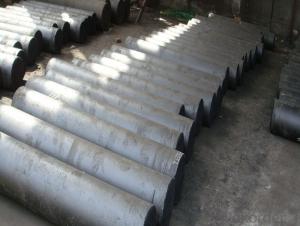When we talk about graphite electrodes, we’re diving into a world of metallurgy and manufacturing that’s as fascinating as it is essential. These cylindrical wonders are the unsung heroes of the steel industry, playing a pivotal role in the production of steel through the electric arc furnace process. But what happens when the demand for these indispensable components goes international? That’s where graphite electrode exporters come into the picture.
I’ve always been intrigued by the global interconnectedness of industries. The way products and materials travel across borders, adapting to different markets and needs, is a testament to human ingenuity and adaptability. Graphite electrode exporters are the modern-day merchants, navigating the complexities of international trade to meet the ever-growing demand for their products.
Let’s start with the basics. Graphite electrodes are made from needle coke and pitch, which are then baked, impregnated, and graphitized to achieve the desired properties. These properties include high thermal and electrical conductivity, as well as the ability to withstand extreme temperatures. It’s no wonder that they’re crucial for the efficient operation of electric arc furnaces.
Now, when it comes to exporting, there’s a lot more to it than just shipping the product. Exporters must consider various factors such as quality standards, certifications, and compliance with international regulations. They must also be aware of the market dynamics in different countries, including pricing trends, demand patterns, and the competitive landscape.
One of the key challenges for graphite electrode exporters is ensuring the quality of their products. With the international market being highly competitive, buyers are looking for the best quality at the most competitive prices. Exporters must invest in state-of-the-art manufacturing facilities and adopt stringent quality control measures to ensure that their products meet the highest standards.
Another important aspect is certifications. Many countries have specific requirements for the import of graphite electrodes. Exporters must obtain the necessary certifications to prove that their products comply with the safety and environmental standards of the importing country. This can be a time-consuming and costly process, but it’s essential for gaining a foothold in the international market.
Compliance with international regulations is also crucial. Exporters must stay updated on the latest regulations and ensure that their products and processes adhere to these standards. This includes everything from packaging and labeling to shipping and customs clearance.
But it’s not all about the technicalities. Graphite electrode exporters must also develop strong relationships with their customers. Building trust and understanding the unique needs of each market is vital for long-term success. This involves regular communication, attending trade shows, and even visiting customers to better understand their requirements.
Innovation is another key factor for graphite electrode exporters. As the steel industry evolves, so too must the products that support it. Exporters must invest in research and development to create new and improved graphite electrodes that cater to the changing needs of the market.
Sustainability is also becoming increasingly important in the global market. With a growing awareness of environmental issues, buyers are looking for products that are not only high-quality but also environmentally friendly. Exporters must consider the environmental impact of their products and processes and strive to minimize their carbon footprint.
Diversification is another strategy that can help graphite electrode exporters stay ahead of the competition. By expanding into new markets or offering a wider range of products, exporters can reduce their reliance on a single market and mitigate risks.
In conclusion, meeting the international demand for graphite electrodes is a complex and multifaceted task. It requires a combination of high-quality products, adherence to international standards, strong customer relationships, innovation, sustainability, and diversification. As the world continues to grow and develop, the role of graphite electrode exporters will only become more critical in supporting the global steel industry.

